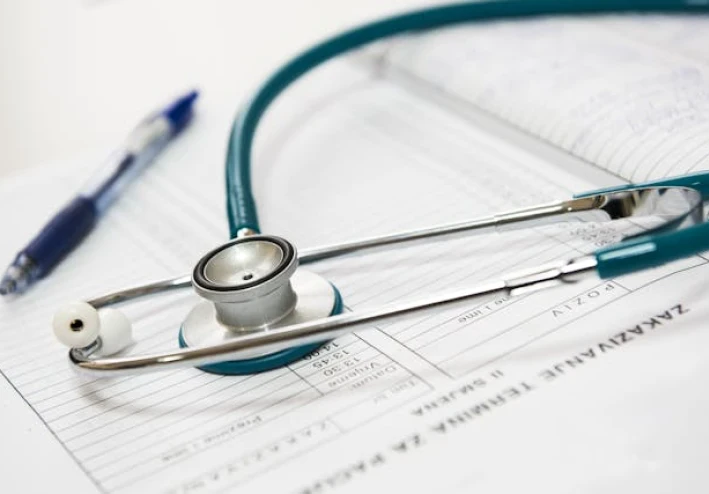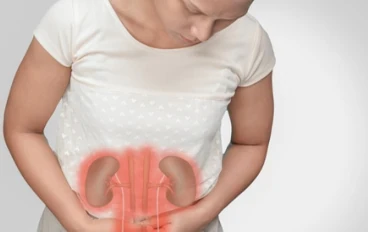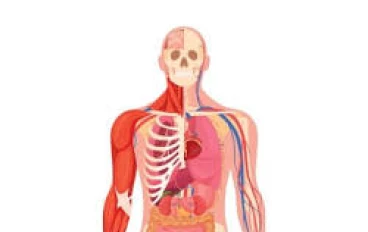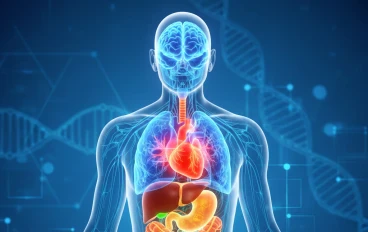
5 Warning Signs of Cancer You Should Never Ignore
Cancer is a word that strikes fear into many hearts—and for good reason. It’s one of the leading causes of death globally, responsible for millions of lives each year. But here's the truth: early detection can save lives. Many types of cancer can be treated successfully if caught in their early stages. That’s why understanding and recognizing the warning signs of cancer is so important
In this article, we’ll explore five alarming signs that could indicate cancer. While these symptoms don’t always mean you have the disease, they’re red flags that you should never ignore. If you experience any of them, speak with a medical professional as soon as possible
Unexplained Weight Loss
Losing weight without changing your diet or exercise routine might sound like a dream—but it could actually be a nightmare in disguise. Sudden, unexplained weight loss is one of the most common signs of cancer, particularly cancers of the pancreas, stomach, esophagus, or lungs
When cancer is present, it can affect your metabolism and cause your body to burn more calories than usual. Tumors also release substances that alter the way your body uses energy
:What to watch for
.Losing more than 10 pounds without trying-
. No changes in eating or physical activity-
.Feeling tired or weak despite weight loss-
Persistent Fatigue
We all feel tired sometimes. But if you’re constantly exhausted no matter how much sleep you get, it might be a sign that something more serious is going on. Fatigue caused by cancer is different from normal tiredness—it doesn’t go away with rest and gets progressively worse over time
Certain cancers, such as leukemia, colon, or stomach cancer, often present with overwhelming fatigue due to blood loss, nutrient deficiencies, or the cancer cells themselves disrupting normal body function
: What to watch for
- .Fatigue that lasts more than two weeks-
. No improvement after rest-
. Difficulty concentrating or staying awake during the day-
Unusual Lumps or Swelling
Perhaps the most recognizable symptom of cancer is a new lump or mass in the body. While not all lumps are cancerous, any unusual swelling under the skin should be checked by a healthcare professional
.Breast cancer, testicular cancer, and lymphomas often begin with a noticeable lump. Sometimes, the lump is painless, making it easier to ignore—but that’s a mistake
:What to watch for
.Hard or immovable lump under the skin-
.Swelling in the neck, groin, armpit, or breasts-
.Changes in the size, shape, or texture of a lump-
Changes in Skin or Moles
Skin cancer is one of the most common and most treatable forms of cancer, but it requires vigilance. Changes in your skin—especially in existing moles—can signal the early stages of melanoma or other skin cancers
:The "ABCDE rule" is a helpful guide to monitor moles
.Asymmetry: One half doesn't match the other-
.Border: Edges are irregular or blurred-
.Color: Multiple shades or colors-
.Diameter: Larger than 6mm (about the size of a pencil eraser)-
.Evolving: Changes in size, shape, or color over time-
:What to watch for
.New or changing mole-
.Sores that don’t heal-
.Unusual pigmentation or texture-
Persistent Pain or Discomfort
Pain is your body’s way of telling you something is wrong. While many types of pain are temporary and harmless, persistent or unexplained pain can be a sign of cancer
:The type of pain can vary based on the cancer’s location
.Back pain might indicate ovarian or pancreatic cancer-
.Headaches could be linked to brain tumors-
.Pelvic pain may signal endometrial or cervical cancer-
:What to watch for
.Chronic pain without a clear cause-
.Pain that doesn’t respond to medication-
.Pain that gets worse over time-
Why Early Detection Matters
Detecting cancer early dramatically increases the chances of survival. For example, the five-year survival rate for localized breast cancer is over 90%, while late-stage diagnosis reduces it significantly
Doctors use screening tools like mammograms, colonoscopies, and blood tests to detect cancer even before symptoms appear. However, not all cancers have screening protocols, so being alert to warning signs is essential
? When to See a Doctor
While these symptoms can be caused by less serious conditions, it’s always better to be safe. If any of the above signs persist for more than two weeks, consult a healthcare professional immediately. A simple checkup could make a life-saving difference
Final Thoughts
Cancer is a formidable disease, but early detection gives you power. By staying informed and listening to your body, you can catch warning signs before it’s too late. Remember, no symptom is too small when it comes to your health
.Be proactive, ask questions, and prioritize regular medical checkups. It could save your life—or the life of someone you love































